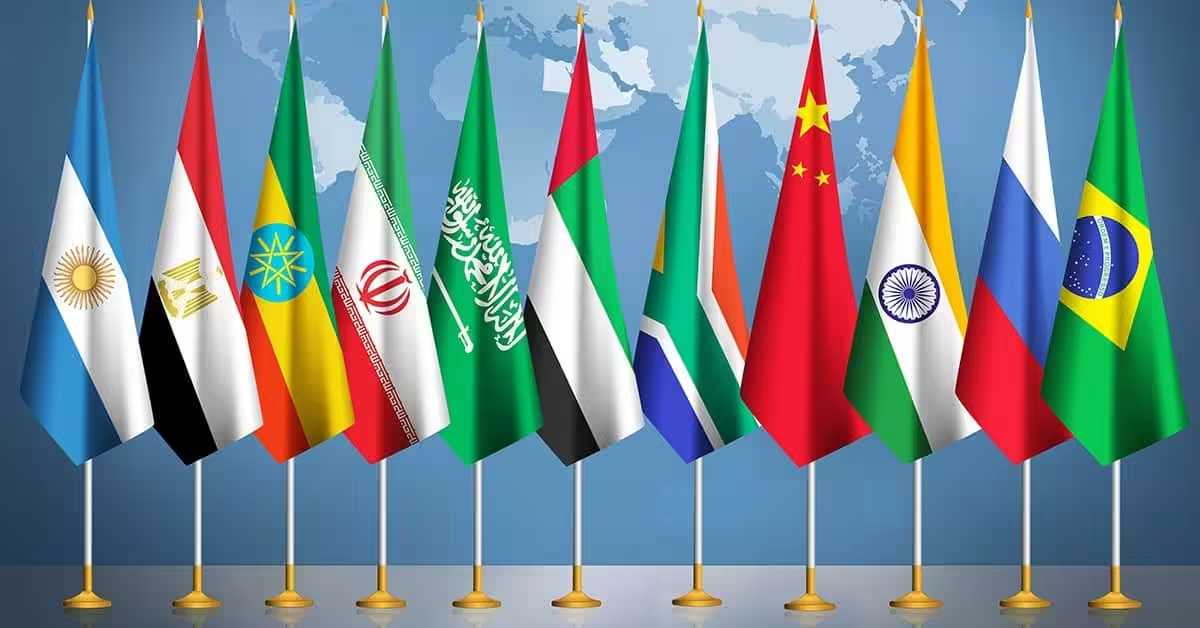|
Getting your Trinity Audio player ready...
|
Saudi Arabia has declined BRICS membership amid the alliance’s ongoing summit in Russia this week. On Wednesday, the bloc unveiled a list of new partner countries; however, Saudi Arabia was conspicuously absent, marking a significant shift for the oil-rich kingdom and its potential role within the coalition of emerging economies.
Last summer, Saudi Arabia received an invitation to join BRICS, an alliance consisting of Brazil, Russia, India, China, and South Africa, and viewed as a counterbalance to Western economic influence. Joining BRICS would have positioned Saudi Arabia as a key player in the Global South, potentially reshaping energy trade and geopolitical alliances. Instead, the kingdom has chosen to keep the invitation at arm’s length, joining Argentina as the second nation to decline the summer invitation from BRICS.
New BRICS Partners Announced Amid Membership Freeze
While Saudi Arabia opted out, BRICS introduced several new partner nations, including Algeria, Belarus, Bolivia, Cuba, Indonesia, Kazakhstan, Malaysia, Nigeria, Thailand, Turkey, Uganda, Uzbekistan, and Vietnam. Notably, these countries are designated as “partners” rather than official members. BRICS leaders confirmed that no new official memberships would be granted this year, indicating a selective approach toward expansion.
The inclusion of new partners, albeit without full membership, underscores BRICS’ ambition to broaden its influence without compromising on its founding goals. By attracting countries from diverse regions, BRICS aims to amplify its reach in global trade, energy, and strategic policies—sectors where Saudi Arabia’s involvement would have been a game-changer.
Why Did Saudi Arabia Decline Membership?
Saudi Arabia’s decision to forgo BRICS membership appears to be carefully calculated, reflecting its ongoing evaluation of the risks and benefits associated with joining. The kingdom has acknowledged both the strategic benefits and the potential diplomatic fallout that membership could bring, particularly regarding its relations with Western powers.
The kingdom’s economic strength, largely derived from its oil and gas exports, would have made it a powerful ally within BRICS. Additionally, its membership would have been instrumental in the bloc’s reported agenda to challenge the dominance of the U.S. dollar in global trade. Yet, with strong ties to the United States and a longstanding role within the Organization of the Petroleum Exporting Countries (OPEC), Saudi Arabia may view BRICS membership as a potentially destabilizing move.
Moreover, its ties with the U.S. and Europe remain economically vital, while BRICS itself has been vocal in its challenge to Western financial dominance. Opting for observer status instead, Saudi Arabia seems to prefer watching how the bloc navigates its own challenges before committing fully.
Saudi Arabia’s Move Reflects Global Geopolitical Nuances
As the summit continues, discussions around BRICS’ role in challenging Western dominance and reconfiguring global trade practices are likely to intensify. Saudi Arabia’s reluctance to join signals a broader trend in which nations seek economic collaboration without necessarily aligning politically or ideologically with any single bloc. The decision not only preserves Saudi Arabia’s current alliances but also keeps its diplomatic options open, a strategy that is likely informed by the ongoing tensions in the Middle East and its complex relationship with global superpowers.
Also Read: BRICS Pay – The Blockchain Solution Driving 30% Of Global GDP Toward De-Dollarization
The Saudi decision reveals the cautious, multifaceted diplomacy many nations in the Global South are adopting. By positioning itself as a BRICS partner rather than a member, Saudi Arabia is maintaining its influential role while mitigating potential conflicts with established alliances.
As the summit draws to a close, it remains to be seen whether Saudi Arabia will continue to keep BRICS at a distance or if it will consider a more active role in the future. For now, the kingdom’s choice underscores the complexity of navigating economic alliances in a multipolar world.
Disclaimer: The information in this article is for general purposes only and does not constitute financial advice. The author’s views are personal and may not reflect the views of Chain Affairs. Before making any investment decisions, you should always conduct your own research. Chain Affairs is not responsible for any financial losses.
I’m your translator between the financial Old World and the new frontier of crypto. After a career demystifying economics and markets, I enjoy elucidating crypto – from investment risks to earth-shaking potential. Let’s explore!


